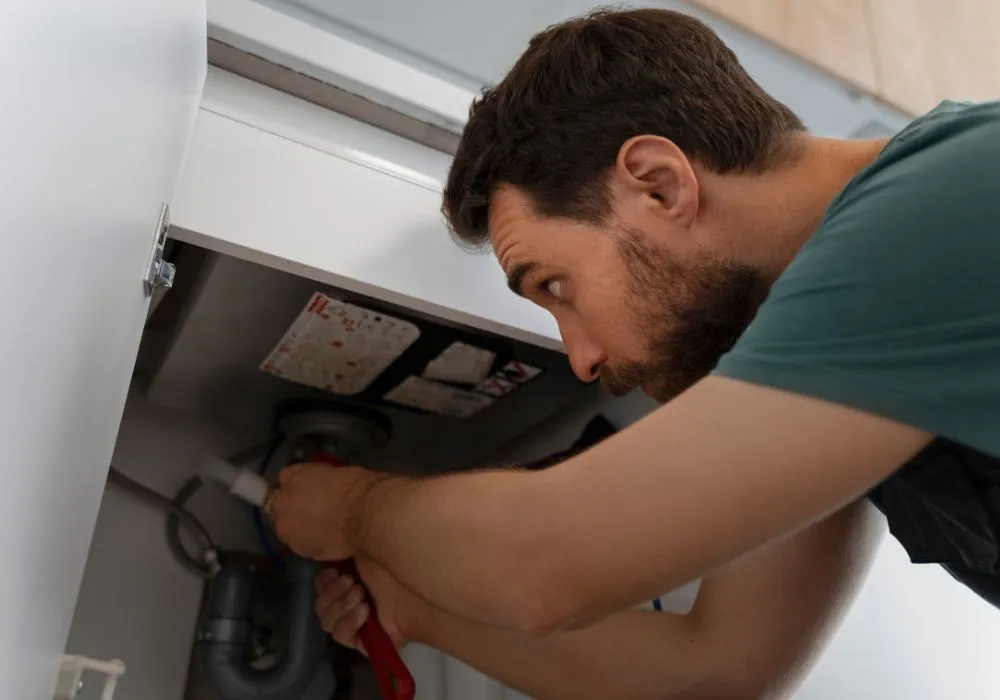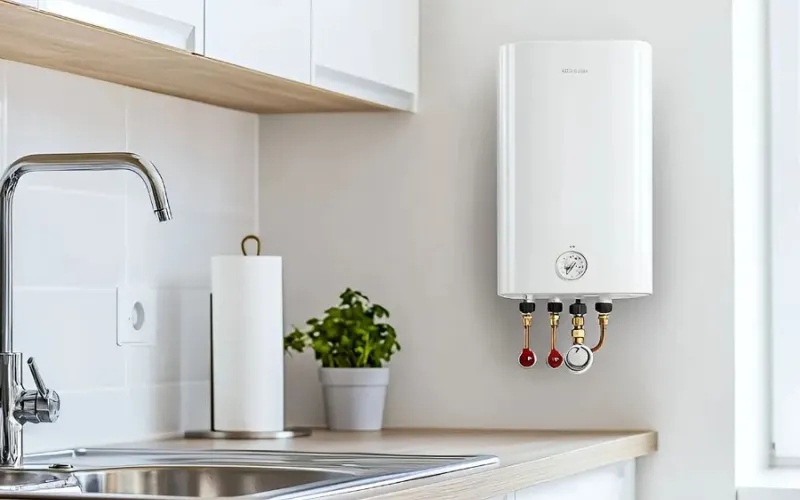A new water heater is one of the most important investments you'll make for your home. The decision impacts your upfront spending and also your monthly utility bills. That's why homeowners need to understand everything about gas vs electric hot water heaters. In this guide, we'll explore the pros, cons, and cost differences to find the best option for you.
How Gas Hot Water Heaters Work
These use natural gas or propane as fuel. A burner at the bottom of the tank heats the water, while a flue pipe vents out exhaust gases. Gas heaters can also come in tankless models, where water is heated instantly.
Important points about gas heaters:
- They heat water faster than electric heaters.
- They work during power outages since they don’t rely on electricity.
- They usually last about 10–12 years with proper care.
- Venting is required, so installation is more complex.
How Do Electric Hot Water Heaters Work?
They use heating elements inside the tank to warm the water. In tankless models, the water passes through coils that heat it instantly.
Important points about electric heaters:
- They are often more energy-efficient since no heat is lost through venting.
- They heat water more slowly than gas models.
- Lifespan is usually 10–15 years with regular maintenance.
- They are easier and cheaper to install because no venting is needed.

Differences Between Gas vs Electric Water Heaters
With this table, you will get a clear idea about the key factors of these two products. We will also show you the cost difference between gas and electric water heaters:
Pros and Cons of Gas and Electric Water Heaters
Here are the pros and cons of gas and electric water heaters to help you compare:
Gas Heater Pros
- Heats water faster.
- Works even during power outages.
- Lower monthly bills in areas with cheap gas.
Gas Heater Cons
- Higher upfront cost for installation.
- Needs venting and a gas line.
- Shorter lifespan.
Electric Heater Pros
- Easier and cheaper to install.
- More energy-efficient overall.
- Longer average lifespan.
Electric Heater Cons
- Slower heating speed.
- Higher monthly bills if electricity rates are high.
- Stops working during power outages.

Tank vs Tankless Options for Both Systems
Both heaters come in tank and tankless options. Here’s a breakdown:
Expert Tips to Choose the Right One
Use these tips for your water heater type comparison:
- Household size: Large families may benefit from faster heating of gas units.
- Energy costs in your area: If gas is cheaper, a gas heater saves money long-term. If the energy bill is cheaper, an electric heater may be best.
- Upfront budget: Electric heaters are cheaper to install. On the other hand, gas requires venting and gas lines.
- Space available: Tankless units save space but cost more upfront.
- Power reliability: If you face frequent outages, a gas heater may be more reliable.
- Environmental goals: Electric heaters can be paired with renewable energy sources. It helps to reduce your carbon footprint.
Conclusion
In the end, the best option in the gas vs electric hot water heater comparison comes down to what you need. Think about your family's size, your budget, and the energy costs in your area. Weighing these points will help you choose the one that will provide warm water for years

